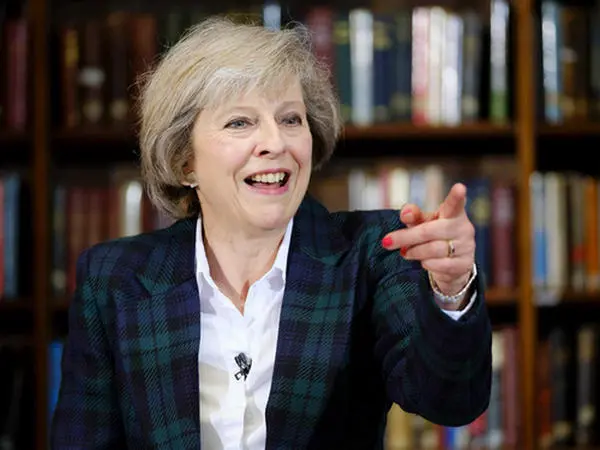By APD writer Wang Peng
Although UK Prime Minister Theresa May won a lot of praises from the 1922 committee after her presentation in front of the backbenchers.
It is still a sad fact that Tory is fractured and her power has been weakened dramatically. With this decreased power, May may not lead the Brexit.
Some may ask who wants her to stay and who wants her to leave? Is she able to get the conservatives out of the mess that she got them into? It’s hard to answer these questions in one word, but it is clear that the Brexit is a tough work as they need hard bargain with both European and domestic negotiators.
As a result, people cannot expect a lame duck, a crippled prime-minister to deal with such kind of business.
Other questions are worth answering: Will there be any changes in terms of policy-making as the fallout of the election? Will there be any compromises to be made? How will the "supply and confidence" relations with DUP affect the authority of Tory?
Generally speaking, the Hung Parliament is constructed by temporary marriages, which will unavoidably increase uncertainties. Consequently, compromises are certainly needed, but still hard to be made. The reason is easy to understand.
Let’s think about the last reluctant temporary marriage seven years ago when David Cameron united with the Liberal democratic to maintain his power. As the old proverb saying goes “love cannot be compelled”, the performance of the coalition government and the cooperation between the two parties are not ideal.
According to Lord Ashcroft's poll, 50 percent of the people aged between 35 and 44 voted for Labor, 14 percent more than two years ago. It is because of the young and middle-aged voters’ dissatisfaction and stern warning. Should this terrify Tory? The answer SHOULD be yes, but actually, Tory may still fail to respond accordingly to improve the performance and governance in various aspects, such as increasing employment and improving the social security.
The fallout of the election may mean to reject Theresa May's plan to seek a clean break from EU. However, in the author’s view, it is more due to the terrible performance of May’s administration of social security (anti-terrorism) and economic revival over the past two months.
In addition, one thing is for sure, the election makes the hard Brexit harder, then how likely is it for a hard Brexit to become a soft Brexit? The answer is also negative. It is a complicated engineering to convert a hard Brexit to a soft one. If the UK voters really want to “soften” the Brexit, they may need another leader because this established approach was selected by May and her team. And now they are not ready, and also have no opportunity to change the old path.
Now, May is facing two options: seeking a closer economic and trade ties with the EU, or maintaining her threat of "no deal for Britain is better than a bad deal". Neither way is easy. Among the major risks involved in either of the approach, the most dangerous one is May’s own “dismay” - losing the already-weakened power. May will dismay. The winter is coming.
Dr. Wang Peng, Research Fellow at Charhar Institute, Lecturer at the China Institute of Fudan University.
 简体中文
简体中文

